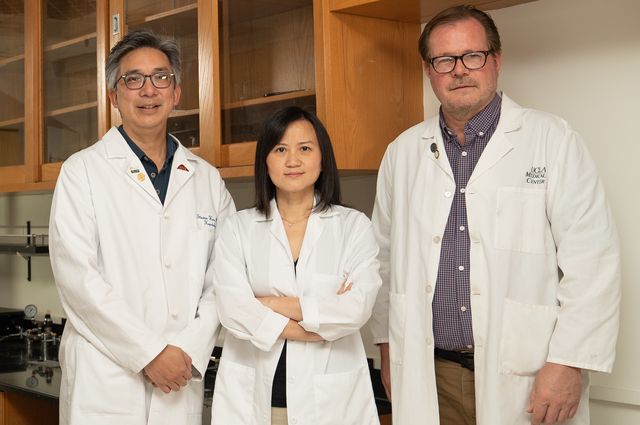
By Jacelyn O’Neill
42,000 new cases of liver cancer are diagnosed every year in the US, which has more than tripled since 1980. The American Cancer society estimates 30,000 people die from liver disease every year and the death rate has continued to increase over the last 18 years. Currently, there are not any recommended blood tests to screen for liver cancer. For high risk individuals, the standard practice is imaging the liver every six months, but doctors are only able to detect the cancer after it has already formed.
In November 2018, UCLA research team led by Dr. Xianghong Jasmine Zhou, Dr. Steven-Huy Han, and Dr. Samuel French were awarded a grant from the National Institutes of Health for $3.5 million to research an effective, non-invasive, and affordable cancer screening test able to detect liver cancer earlier.
The grant will continue to help fund projects such as the CancerLocator and the CancerDetector, which will use DNA methylation signatures to detect cancerous cells in the blood from a liquid biopsy.
To validate the blood test of liver cancer, also known as “liquid biopsy,” a cohort of thousands of high-risk individuals for developing liver cancer will be followed-up for 5years. The test is based on the DNA methylation patterns of circulating tumor DNA. Circulating tumor-derived cell-free DNA carries cancer specific genetic information, which enables a less invasive and cheaper way to diagnosis cancer.
The goal is to be able to perfect the method and eventually be able to utilize DNA methylation signatures in cancer detection to make the process less invasive, cheaper, and earlier detection. Liver cancer is their focus right now but they hope to expand to other types and eventually be able to use it in identifying and locating cancerous tissues and tumors.
UCLA Institute for Digital Research and Education (IDRE)has been instrumental in making the technology available for parallel computation of large amounts of data in a shorter amount of time. Zhou hopes to continue to optimize the signature and further develop the algorithms that will recognize the different signatures of methylation of DNA. Zhou described the process of actually detecting tissues as, “Cancer signals are very weak, they are like finding a needle in a haystack.” Zhou’s work will be instrumental in optimizing the algorithms and finding the needle in the haystack, which will eventually allow the focus to be shifted to preventative measures.
The research team includes Drs. Sarah Dry, Francisco Durazo, Mohamed El Kabany, Wenyuan Li, David Lu, SammySaab, and Myron Tong.
Reference Articles:
- “CancerLocator: non-invasive cancer diagnosis and tissue-of-origin prediction using methylation profiles of cell-free DNA” Genome Biology. 24 March 2017.
- Furness, Dyllan. “Groundbreaking new technique can pinpoint the location of cancer using nothing more than a blood test.” Digital Trends. 5April 2017. https://www.digitaltrends.com/cool-tech/cancer-locator-program-blood-analysis/
- Heady, Denise. “Researchers receive NIH grant to improve liver cancer screening.” UCLA Newsroom. 13November 2018. http://newsroom.ucla.edu/dept/faculty/nih-grant-awarded-to-ucla-researchers-to-establish-center-for-the-early-detection-of-liver-cancer
- “CancerLocatorTool Aims to Non-Invasively Diagnose Cancer, Pinpoint Tissue of Origin.” GenomeWeb. 24 May 2017. https://www.genomeweb.com/cancer/cancerlocator-tool-aims-non-invasively-diagnose-cancer-pinpoint-tissue-origin#.XH2Rd89Ki-p
- Kirkpatrick, Bailey.“Epigenetic Computer Program ‘CancerLocator’ Detects and Pinpoints Cancer.”What is Epigenetics. 11 April 2017.